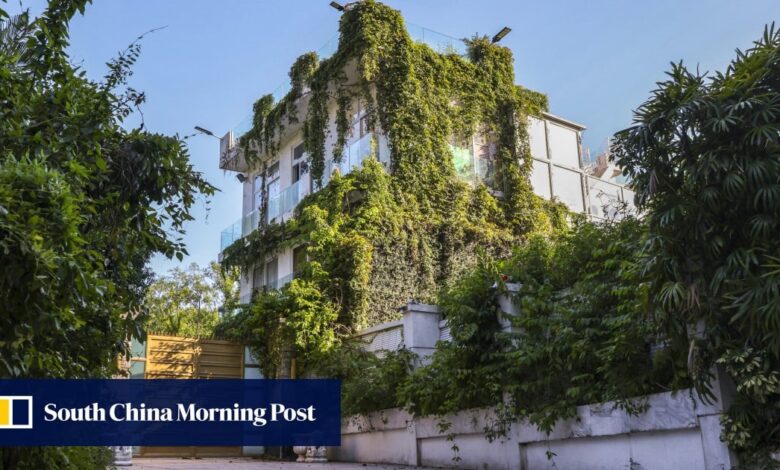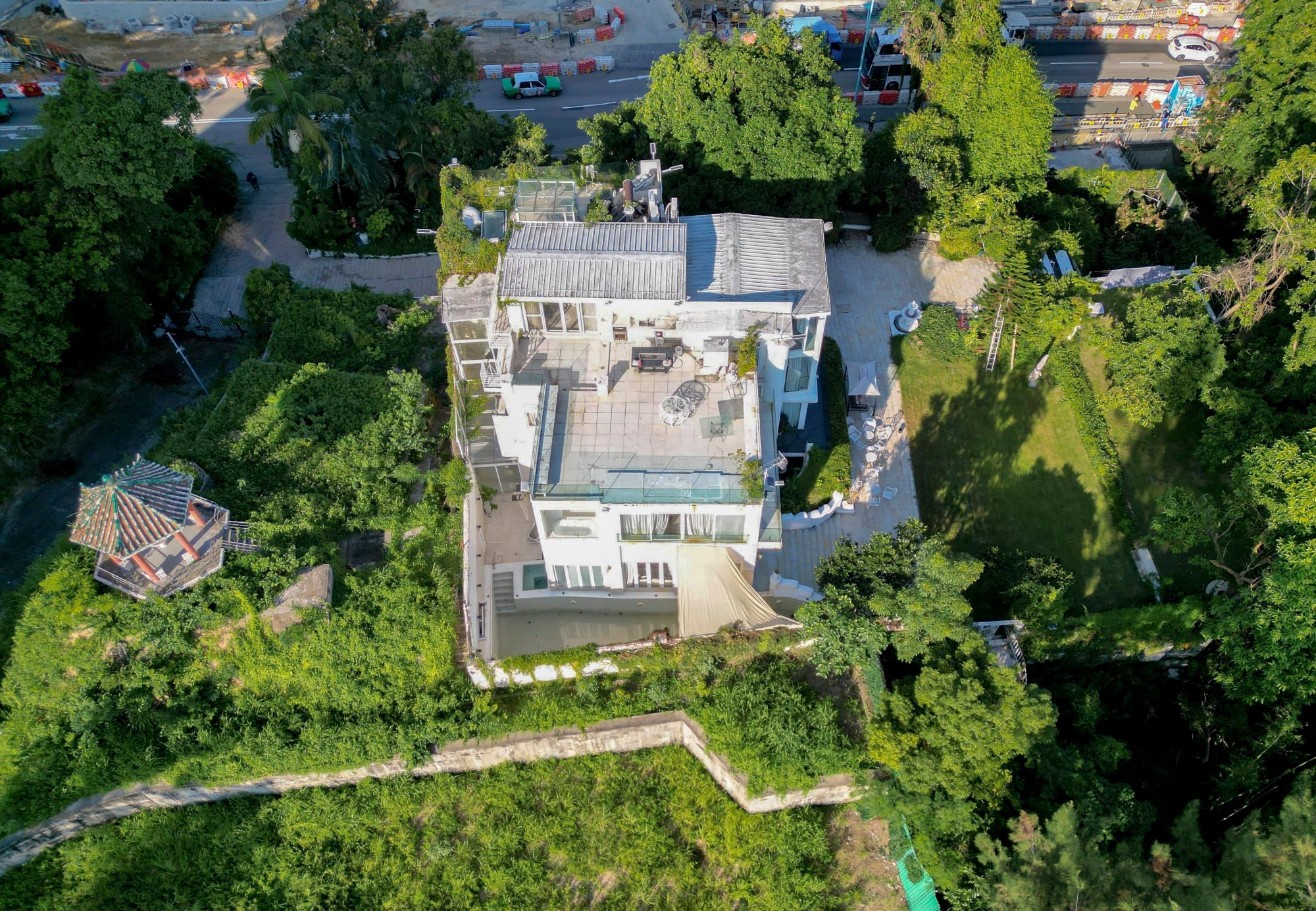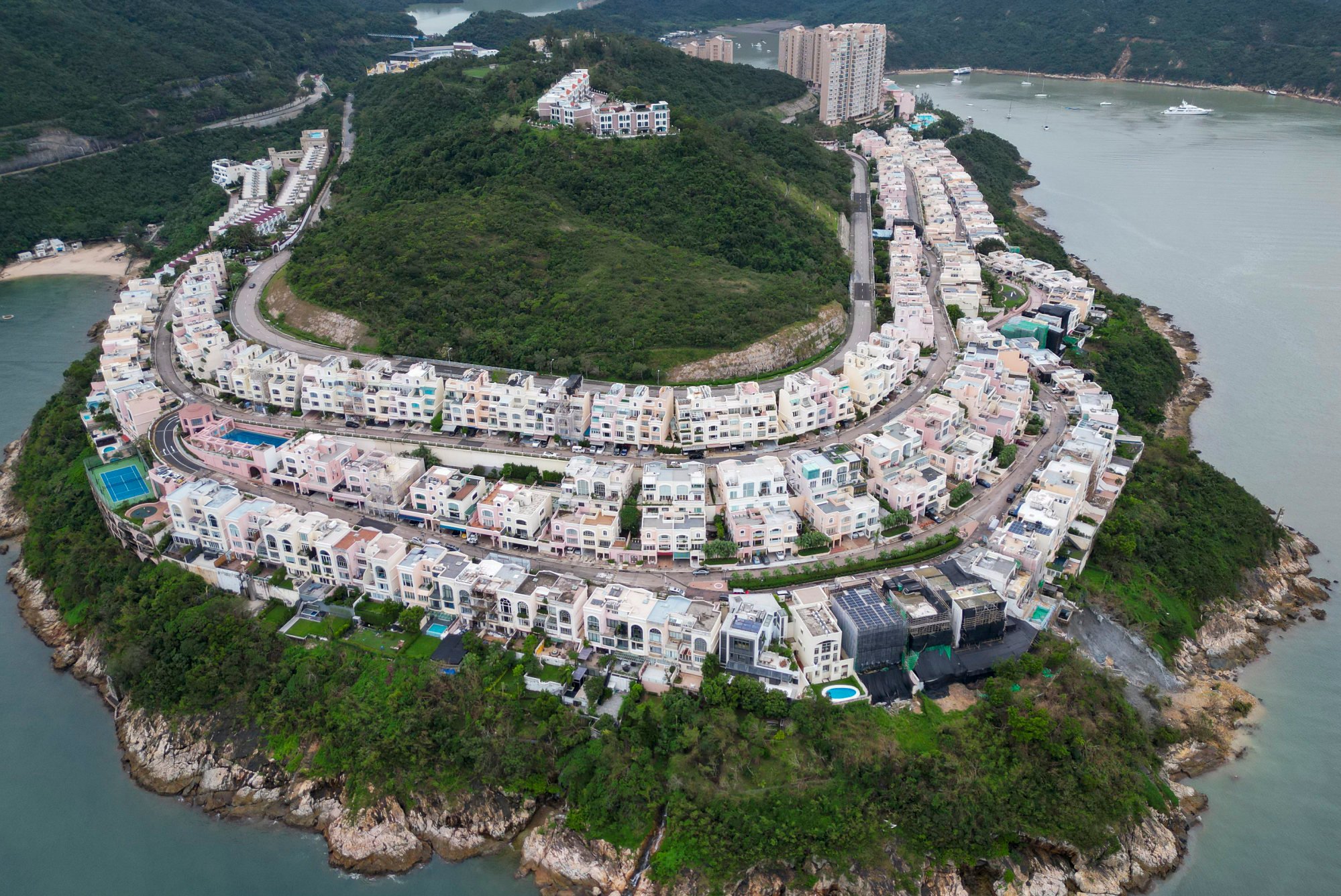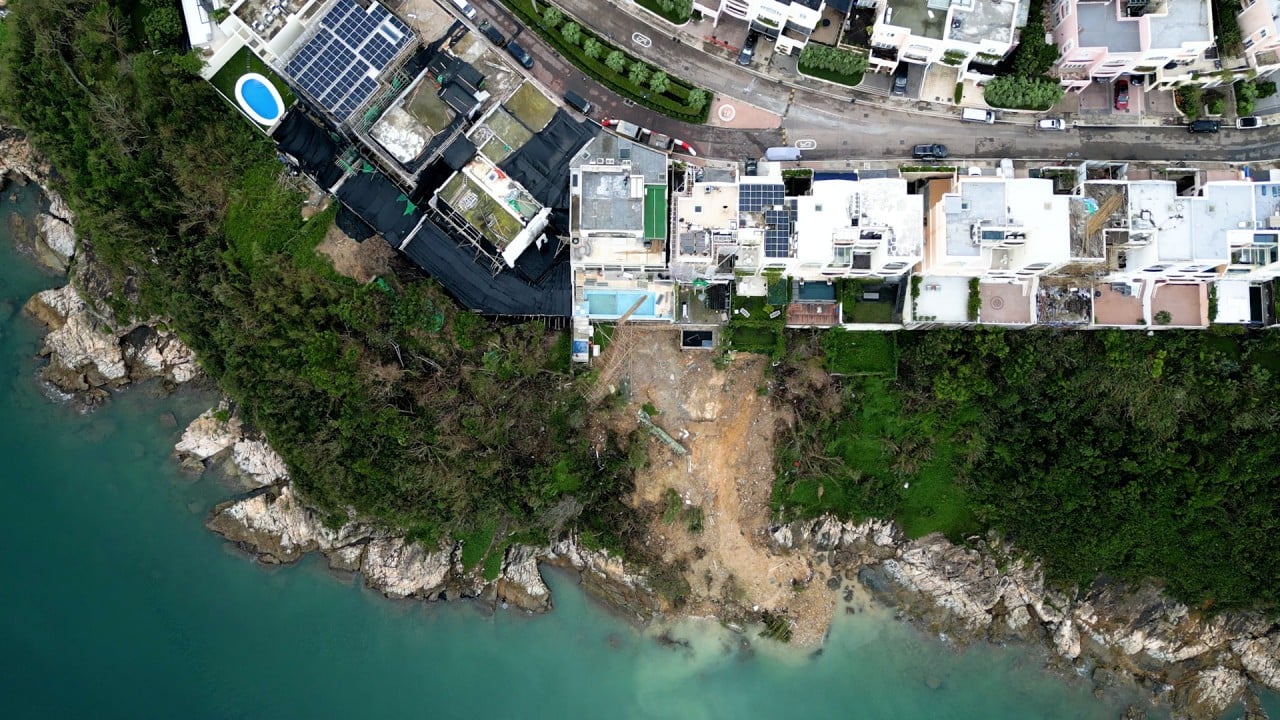Hong Kong illegal structures: luxury-house owner in Redhill Peninsula scandal facing second prosecution for ignored orders on another home

[ad_1]
The Buildings Department revealed on Monday it would take legal action for a second time against the owner of Villa Cornwall on 85 Castle Peak Road in Tuen Mun, over unauthorised works spanning 4,843 sq ft, comprising two three-storey blocks, a two-floor structure and an additional roof installation.
A department spokesman said the owner was fined HK$24,900 (US$3,200) in August 2019, after removal orders issued in November 2017 for the illegal structures were ignored.
Hong Kong seaside homes targeted as officials widen crackdown on illegal structures
Hong Kong seaside homes targeted as officials widen crackdown on illegal structures
“As the relevant owner has yet to carry out the order, the Buildings Department has commenced prosecution proceedings for the second time,” the spokesman said.
The owner of Villa Cornwall is also linked to one of three houses found with illegal structures at the upmarket Redhill Peninsula in Tai Tam, the Post has found.

It is understood Villa Cornwall is owned by Global Event Limited, a company registered in the British Virgin Islands, which bought the plot of land where the house is located for HK$22 million in 2007.
Yuen is said to be listed as the sole director of Future Ocean Limited, which owns house No 74 at Redhill Peninsula, where building authorities found a three-storey illegal structure facing the sea.
Villa Cornwall was listed for sale at HK$380 million or monthly rent at HK$290,000 from August 2, 2021, with a saleable area of 2,339 sq ft on the website of a property agent, who revealed on a call that the home actually covered an area of close to 7,000 sq ft, including its garden.
The house also appears on Airbnb for HK$32,000 a night by ECrent Worldwide Company, which is co-directed by Chan Tin-chi. The company’s registered office address is listed as Villa Cornwall.
Deborah Yuen was identified as founder of ECrent Worldwide Company, with Chan listed as chairman, in a document detailing their presentation at a forum organised by the United Nations Economic Commission for Europe in 2016.
In the same document, the company was said to have been founded in 2013.
Hong Kong ‘serious’ about tackling illegal structures but pragmatism needed: John Lee
Hong Kong ‘serious’ about tackling illegal structures but pragmatism needed: John Lee
The Airbnb listing says the property can house up to eight guests in its six bedrooms and includes facilities such as eight parking spaces, a private heated swimming pool and jacuzzi, a garden, a sauna and a gym.

Secretary for Development Bernadette Linn Hon-ho later also warned of legal action against owners and citywide scrutiny on seaside homes on slopes.
Under the Buildings Ordinance, anyone who fails to comply with a removal order, upon conviction, can face a maximum penalty of a year behind bars and a fine of HK$200,000. Offenders may also be ordered to pay HK$20,000 for every day that an order is not carried out.
What illegal structures were found at Hong Kong luxury estate Redhill Peninsula?
What illegal structures were found at Hong Kong luxury estate Redhill Peninsula?
Arthur Cheung Man-to, chairman of the Hong Kong Institute of Surveyors’ Building Surveying Division, said the existing penalty had a deterrent effect but he expressed hope future court rulings could consider heavier sentences.
“The fine can be huge if owners fail to carry out the order. The court can think of the size of the unauthorised structure and its actual impact when it is considering the verdict,” Cheung said, noting that first-time offenders and those who pleaded guilty could get sentencing discounts.
He added that it was not ideal to increase the existing maximum penalty as unauthorised works could range from a flower rack to multilevel structures.

Chan Kim-ching, founder of the Liber Research Community, an NGO focusing on land issues, urged authorities to step up enforcement actions against owners with illegal structures.
“When the government cannot confirm whether owners have unauthorised structures, it cannot fine them. The penalty is then useless,” Chan said.
[ad_2]
Source link






